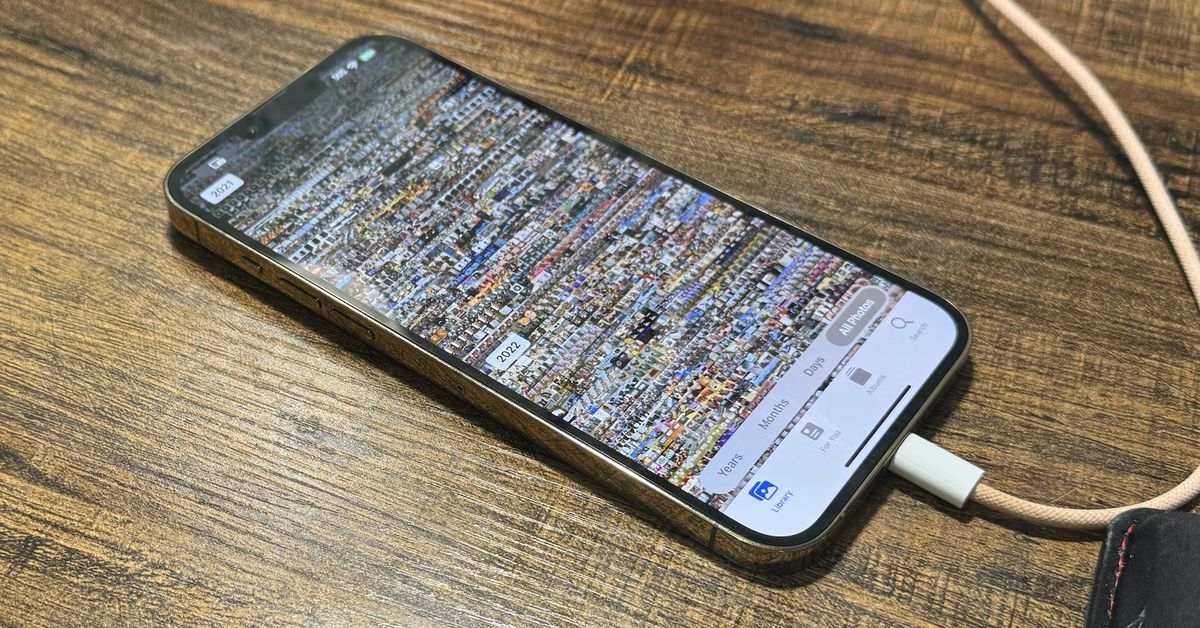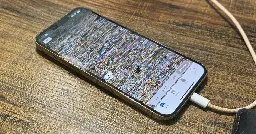iPhone owners say the latest iOS update is resurfacing deleted nudes
iPhone owners say the latest iOS update is resurfacing deleted nudes

iPhone owners say the latest iOS update is resurfacing deleted nudes

cross-posted from: https://sopuli.xyz/post/12670977
iPhone owners say the latest iOS update is resurfacing deleted nudes



I appreciate this thread's nuanced discussion of how file deletion works from a technical standpoint depending on storage medium. But as a user, when I delete something, it should go away forever. I don't care how.
grabs your phone, throws it on the ground and blasts it with a shotgun
There you go! =)
Cloud's deleted folder enters the chat.
Well… if you really want to delete them…
takes blasted phone, insert remnants into small iron cup, places in inductive furnace
Hey at least I know it gets the job done
Easy peasy
Years of working tech support in my past tells me that this is a lie. "OMG restore this!"
I think tech would be a better place if it did actually go away when you deleted things. If something's not explicitly backed up people really should have no hope of bringing it back.
If every time an OS had to delete something it had to fill the space with zeros or garbage data multiple times just to make extra sure it's gone, we'd all be trashing our flash chips very fast, and performance would be heavily degraded. There really isn't a way around this.
The solution to keep private files private is to put them into an encrypted container of some sort where you control the keys.
Step away from hardware constraints for a moment, and consider the OS:
If the OS says a file is deleted, under no circumstances should the OS be able to recover it. Sure, certain tools may exist to pull it back; but it should be unavailable to the OS after that. And yet, apparently a software update was enough to recover these files. Thus, the concerns about data safety in an environment where the OS cannot be trusted to remove data when it says it has been removed.
Well, the storage device should handle that then. And modern NVMEs do. Self-encrypted drives are used to hide deleted information from an attacker that desolders the storage chips.
Edit: there are NVMEs that dont use self encryption, BUT they should still recognize a deleted sector.
The OS should never let that happen. It always should abstract the partition into a filesystem.
It's to prevent you from accidentally deleting a photo you would never want to delete. If you want to make sure it's deleted, you just go into the Photos app and delete it from the Recently Deleted folder. I prefer this approach, as I have accidentally deleted a photo that I did not mean to, and luckily it was still there. Use cases are different though, so.
That still doesn't fully erase the data though. It just tells the computer that that space on the drive is available to be overwritten, but the 1s and 0s are still recoverable
Imo there should be options for standard deletion and total deletion. Standard is faster, puts less wear on the drive, and keeps the files potentially recoverable, whole total would make it totally unrecoverable at the expense of taking slightly longer and putting a bit more wear on the drive
That is what thermite is for.
The second drive bay is the right size for a handy block of data erasing c4
No one will ever read my Zuck / Bezos fanfic.